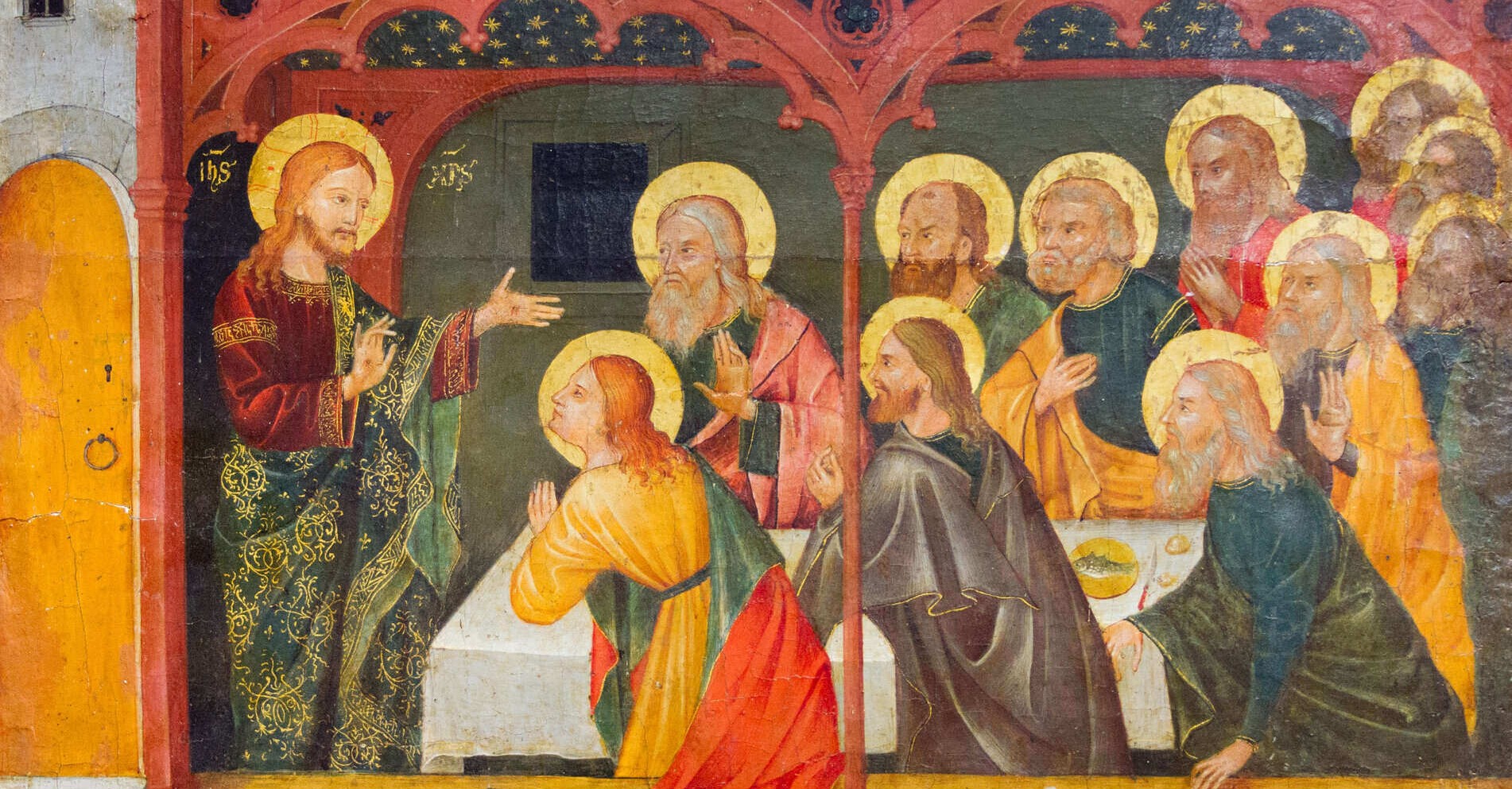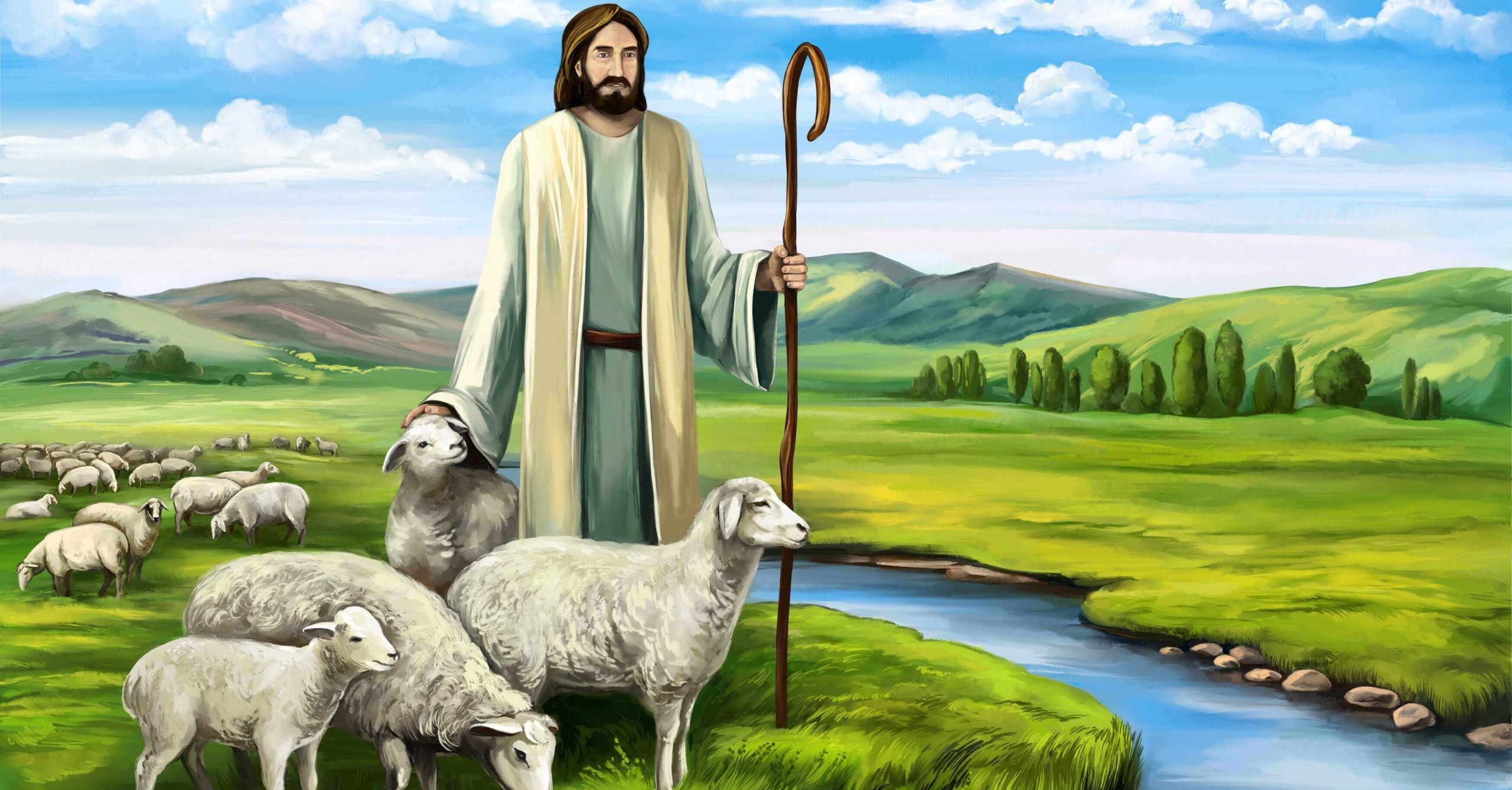Proper 16, 21 August 2022
God is great, and He does great things, but divine initiative requires a human response: He is great to those who fear Him, trust in Him, and follow Him. From those to whom much is given, much is required.[i]

Only God can make life better
Man is inclined to make life easier, better, happier, and more convenient. Life has changed over the years, especially for many who have come from a less fortunate situation. Many people have regrets, and say, “I wish I had listened to God”; but I will never regret giving my life to Jesus Christ. My sister saw my life in Europe and thought I’d become “lucky”, but I told her it was the fruit of choosing to serve God. God has done unimaginable things in many people’s lives. Many people seek a better life, but deep in their soul they know something is amiss. We don’t want our children to undergo the same struggles that we experience, and we may be able to make the world and society better; but it will never be better than God wanted creation to be, or compare with His ability.
In today’s Gospel, someone asked Jesus, “How many will be saved?” On another occasion someone asked, “How can I inherit eternal life?” – or, “How can I be saved?” In the world we live in, some have thrown away the idea of salvation: “There is no salvation”. C.S. Lewis said the hardest people to heal are those who don’t think they are sick, and the hardest to save are those who don’t think they need salvation. But Christians strongly believe in salvation, because God promised it and made it possible; that’s why we have hope. We speak about salvation all the time, because God gave us the understanding that there is salvation and He is our Saviour.
Salvation is a complete change in the human condition, particularly in one’s relationship with Christ; C.S. Lewis said that if a person claims to have had a conversion but nothing has changed in his or her life, that conversion is an illusion. Salvation includes the forgiveness of sins, adoption into God’s family, and ongoing personal renewal and transformation through the work of the Holy Spirit.
Strive to live your salvation
Jesus didn’t answer the question directly, but explained the responsibility of those who are recipients of salvation. Rather than saying how many would be saved, He told us what will be required of us, and warned those who assumed they had been saved. Many will be surprised by His words,
“I do not know you… you workers of iniquity”;[ii]
this is a warning not only to the children of Israel, but to us all.
Before that, He said,
“Strive to enter”.[iii]
To strive is to struggle. Saint Paul said, figuratively speaking,
“Run the race as if you want to win the prize”.[iv]
To participate in the Olympics takes a lot of striving: some gymnasts practice eight hours every day to win the gold medal. We need to strive as if we are competing. This does not suggest that human doing will acquire salvation; however, it implies that since God has provided salvation, we should strive for it, to take hold of it, keep it, and not lose it. Saint Peter said,
“You were not redeemed with corruptible things, like silver and gold… but with the precious blood of Christ, as of a lamb without blemish and without spot.”[v]
The Apostle Paul said that since we are recipients of salvation, we need to
“work out [our] salvation with fear and trembling”.[vi]
Salvation is a gift from God which we receive; but those who receive have the responsibility to live by that salvation.
Some people say, “Once saved, always saved; I can do whatever I want, because I’m saved anyway.” But Fr. Patrick Reardon says,
“Frequently in the Bible salvation is something for which we wait in patience, often spoken of in the future tense”:
“Whoever calls on the name of the LORD SHALL BE saved”.[vii]
The Church says, “We were saved, we are being saved, and we will be saved.”
Jesus says the door is narrow. This points to the costs of discipleship and of following Christ, which goes against the grain. It also means there is only one door through which we can enter: there is no salvation except in Christ. If God promised salvation, man cannot fabricate a new door for it. Jesus is the ONLY Way, the Truth, and the Life. There is only one door, and you need to strive to enter through it. On another occasion, Jesus said,
“I am the door.”[viii]
Striving is necessary: if you want to grow in your relationship with God, it must be intentional. To know Jesus, you need to invest your time; and to have salvation you need to make an effort. When I was taking my children to school, I often saw a man with a lot of heavy wrinkles. I didn’t have the opportunity to talk to him, but I imagined that he was a farmer who was taking care of his grandson, and that his wrinkles showed how life was very hard for him and how he had striven to live to the best of his ability. There is striving in life: those of you who came to Europe from the Philippines had to strive; and if you want to move forward, you have to strive. Everything is striving – it does not come easily; as the saying goes, “If there’s no pain, there’s no gain.” Anything can be learned in life, anything can be acquired, and you can become someone completely different with God’s help; but you need to strive. We need to strive to live our salvation: it is not waiting for us after we die, but we can live it now.
It is great to be a recipient of salvation, but what about our responsibility?
Be enthusiastic
In Revelation 3:20, Jesus says,
“Behold, I stand at the door and knock. If anyone hears My voice and opens the door, I will come in to him and dine with him, and he with Me.”[ix]
This seems to be the opposite of what Jesus is saying in the Gospel, and often it is misunderstood. Sometimes it is interpreted as if Jesus were knocking on your heart and saying, “Please, please, let Me in”, as a feeble plea; but we need Jesus more than He needs us. Often it is interpreted as, “Open your heart to Jesus, because He’s knocking at the door; let Him into your life”; but we need to understand the context.
Jesus was correcting the Laodicean church for being lukewarm, or tepid in their relationship with Jesus and their faith in God.[x] Parents test the water when they give their babies a bath, to make sure it is not too hot or too cold. While “hot” means godly enthusiasm, “cold” means ungodly antagonism, or total rejection. Christians should be enthusiastic about God: enthusiastic to come to church to worship God, to know Jesus in His Word, and to love God who loved them.
Christians should be enthusiastic in their faith, but some people are more enthusiastic about Facebook. Nowadays I hold my phone more than my wife’s hand; and some people can leave the house without their wife or husband, but not without their phone. Pope Francis told the world,
“I wish you would open your Bibles the same way you open your Facebook”.
People can be enthusiastic, but sometimes it’s for the wrong things.
We are called to be a lighthouse
The Laodicean church received a rebuke because they were neither hot nor cold, so that the Lord was thinking of spitting them out of His mouth; they had become ineffective. “You gather to worship God, but you are ineffective in transforming society and culture. What are you good for?” When a tree was not bearing fruit, Jesus cut it down. God sent Jesus to save the world; and in turn, Jesus sends the Church to announce salvation to the world – because God loves the world.
Today we are reminded of our mission, and of what the Church is all about. The door is narrow because only in Christ can we acquire salvation. For those who have received salvation, we are thankful to God, but we also have a big responsibility. As a church, we have a mission to the city where God has placed us. Let us not be an ineffective church, but the lighthouse God calls us to be. This is a great responsibility, and we need to strive every day to be a part of what God is doing in the earth.
If your life has been changed because of Jesus, many people’s lives are waiting to be changed, and God is waiting to change them. Be an instrument, conduit, and channel of God’s blessing and good news. There are many people who are in need of Christ in the city we live in.
Study questions:
- In what areas of your life do you regret not listening to God? Is there any way in which you regret giving your life to Jesus and following Him?
- Have you experienced conversion and transformation as a Christian? If so, what has changed? If not, why not, and what will allow this transformation to take place?
- In what sense do you understand the statement, “We were saved, we are being saved, and we will be saved”? In what ways does it apply to your life personally?
- Are you striving to live out your salvation, or do you assume you are already saved?
- Are you and your family members hot, lukewarm, or cold, towards Jesus and the Church? What can you do that would help you become hotter?
- Are you more enthusiastic about God or about Facebook? Do you interact more with your family members or with technology? Are you enthusiastic for the wrong things? What can help you direct your enthusiasm more appropriately?
- How effective or ineffective are you, your family, and the church to which you belong, in announcing salvation to the world? How can you become more effective?
- How aware are you of those who need Christ in the community and city where you live? What are you doing to share God’s blessing and the good news of Christ with them as a means for God to change their lives? Is there something God is calling you to do, and are you willing?
[i] Luke 12:48
[ii] Luke 13:27, NKJV
[iii] Luke 13:24, NKJV
[iv] I Corinthians 9:24
[v] I Peter 1:18-19
[vi] Philippians 3:12-13
[vii] Romans 10:13, NKJV, emphasis added
[viii] John 10:7
[ix] Revelation 3:20, NKJV
[x] Revelation 3:14-16









